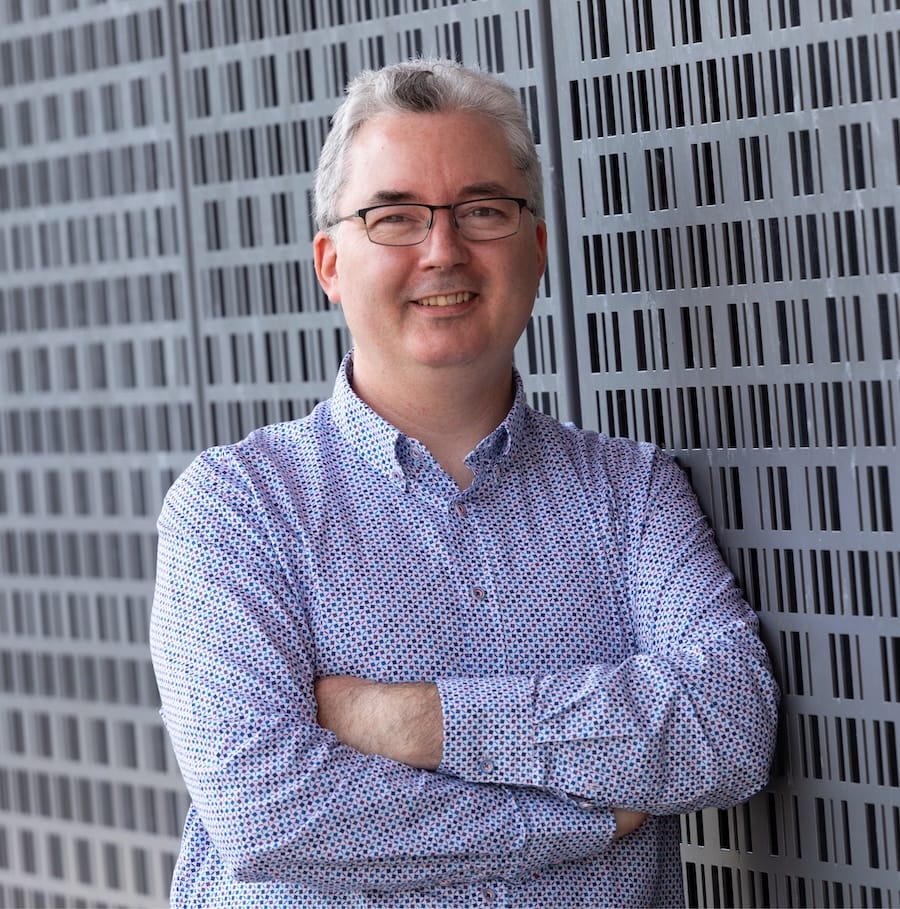
Maynooth University computer scientist Professor Damien Woods has been awarded €4 million in funding under the European Innovation Council Pathfinder Challenge programme, with his proposal for a DNA-based computing and information storage system. Prof Woods’ team was the only Irish-led group to receive the prestigious award in the 2023 funding round.
After a recent patent filing, the team are now positioned to announce the details of this award.
The usage of artificially-synthesised DNA to store large amounts of data could reduce the current high energy demands of digital storage across the world. Horizon Europe, the EU’s research funding program, sought expert solutions as current data storage technologies face energy limits. In Ireland, data centres consumed 21% of total energy in 2023, up from 5% in 2015.
Prof Woods and his team at Maynooth University’s Hamilton Institute will investigate how computers of the future could run on DNA. The new EU grant will build on the work already achieved by the team to enable DNA to store data, then read, write, and carry out computations.
This molecular ‘library’ that Woods’ team is developing will include DNA-based algorithms, that can be triggered to modify data stored in DNA, so that the nanoscale DNA-based computers will have both a memory bank as well as the ability to carry out future computations.
Describing the research, Prof Woods commented: “Each of the cells in your body has more than a gigabyte worth of DNA in it. By taking inspiration from biology, and storing data in DNA we might use less space and energy than currently needed to store digital data, freeing up valuable resources. This nanoscale storage capacity could one day be used for chemical computers that retain and interact with large amounts of data in microscopic amounts of space.”
Traditionally, DNA forms a winding double helix consisting of two long DNA strands bound together. However, Prof Woods and his team will design short DNA strands that interact with a single long DNA strand to encode both data and programs in DNA. DNA interactions are well-understood, and the resulting nanoscale structures are highly predictable from their DNA base sequences, similar to Lego pieces sticking together. To carry out a DNA computation, the team will mix carefully designed synthetic DNA strands that code for specific data and algorithms together into a test tube. The results of computations can be read out using a light-based detection method, or even by using a special microscope to see a folded nanoscale structure.
Prof Woods explained: “DNA in a droplet of liquid can run precise computations. The advantage of this technology compared to digital laptops is that one day we might have a huge amount of data stored in DNA, potentially in much smaller space than current technology. By running computations directly on DNA in the droplet, there is no need to use a laptop and expensive lab equipment to read the data. This has the potential to save on energy costs, but perhaps, more importantly opens up new forms of algorithmic molecular control at the nanoscale.”
The EU’s flagship science and research innovation funding programme, Horizon Europe, sought expert solutions to tackle the challenge of DNA data storage to help combat the growing concerns around energy usage for digital data storage.
Prof Woods previously won a European Research Council grant as well as Science Foundation Ireland funding to develop DNA-based computers, and the work conducted under this new grant will build on that. His team includes Dr Abeer Eshra, Dr Kim Reilly, Dr Constantine Evans, as well as PhD students Ahmed Shalaby and Cai Wood, undergraduates Janet Adio, Angel Cervera Roldan and visiting academic Dr Sergiu Ivanov.
Two SME partners are collaborating on the project: Major Groove by prgm.net, is providing scientific input and lab automation software led by former Maynooth PhD student Dr Tristan Stérin, and tilibit who will synthesise long DNA strands.
See more stories here.

